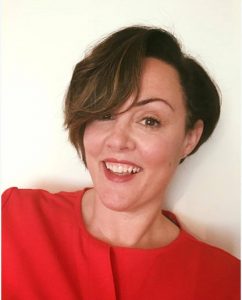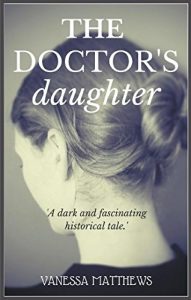IF YOU’RE A WRITER, YOU HAVE TO GET ON WITH WRITING THE BOOK, RIGHT?
 Anyone who has ever tried to write a book will know the pressure of finishing that first draft. It can take months, maybe even years.
Anyone who has ever tried to write a book will know the pressure of finishing that first draft. It can take months, maybe even years.
You get up every morning, stare at the blinking curser and wait for the words to come. Then, when they don’t, you try to force them onto the page – free write until your muse shows up. Maybe it works for a while and the paragraphs start to flow, but maybe it doesn’t. What then? Well, if you’re anything like me, you go back and do more research, revisit your story arc, start a mind map. You might even start up a totally different story altogether. And so, the cycle continues until you have 10 unfinished manuscripts, chewed up fingernails, a serious case of insomnia and an overwhelming sense of failure.
Should you keep ploughing on no matter how hard it gets, or is there an alternative?
I’ve asked myself (and have been asked) this question a lot.
I’ve come to the conclusion that some people simply aren’t meant to write a book (or at the very least aren’t meant to write one right now).
There, I said it.
And there’s absolutely nothing wrong with that.
Nothing wrong with giving yourself permission to LET. IT. GO. Nothing wrong with taking the pressure off and going back to writing just for fun and only when you truly feel like it.
Just as completing a marathon is often considered the measure of a ‘true’ runner, completing a full manuscript is often hailed as the measure of a ‘proper’ writer. The ultimate endurance test and the only way to be taken seriously.
But by whose definition? As I see it, if you have ever put words on a page, you’re a writer. It simply doesn’t matter how often you write, whether or not you get paid to write, how many words you write or how many times your writing has been published. You are still a writer, for as long as you choose to define yourself in that way.
Sure, there are lots of benefits to developing a regular writing practice, completing writing projects and getting your writing published. Practice certainly does help you hone your skills. However, it’s the moment when practice becomes effort, hard work, a slog, that it might be time to give yourself permission to take a break.
That break could be short term, a creative ‘duvet day’ to reflect and recharge. It could be a longer-term sabbatical, time to go off and explore other creative outlets so you can come back to your writing full of fresh inspiration. It could even be a total break-up with writing altogether. Because some things just run their course.
We all come to writing in different ways and for different reasons and there’s nothing wrong with returning to the reason why you started to write and asking yourself if that’s still relevant. If you’re finding writing hard, if you’re demotivated and uninspired, it doesn’t mean you’re a terrible writer. It could just mean that you’ve written all that you needed in order to achieve what you set out to do. And it’s okay to be thankful for all that writing has given you so far and move on to find new ways to flex your creative muscle.
If that feels like freedom, if your shoulders just dropped and you breathed a huge sigh of relief, congratulations. Now you know. You have so many talents, writing a book is just one of a number of exciting possibilities for you to create.
NOT writing the book might well be the best thing you could ever do for yourself.
If you’re still committed to writing but are ready to take a break from bashing away at that book, here are a few ways to revive your writing in the meantime.
- Have a go at haiku – forget about the writing marathon and go for a sprint. Changing your 90,000 word writing goal to a 3 line, 17 syllable haiku could be the key to renewed energy for your craft. Short form poetry packs a powerful punch within a limited word count.
- Become a collector – get outside for a walk and while you’re out and about go on a treasure hunt and see what gems you can find. Gather up leaves, lost items, unusual shaped stones, coins, anything that inspires you along the way. When you get back home lay them all out and see how many different mini stories you can write using them as inspiration.
- Go back to your childhood – remember who you used to be before writing became serious and stressful. What did you used to love doing the most as a child? Who were your favourite literary characters and why? Spend an afternoon journaling about all of your childhood passions, just for fun.
- Draw it out – the written word is just one way to tell a story. Have a go at story telling by drawing pictures instead. You could sketch out a scene from your favourite book, bring one of your own characters or settings to life from a recent piece of writing, or just head out into nature and draw something beautiful you see around you. You don’t have to be good at drawing, it’s just an exercise in imagination and creativity.
- Write a letter – to a friend, to a family member, to a neighbour, or even to yourself. Writing a letter with a real pen and paper can be a wonderful way to reconnect with the art of writing and share some love while you’re at it.
If you’re still not finding your flow after trying new ways to cultivate creativity, you likely just need some time out. Take it. You’re still a writer irrespective of whether you slave away at your computer every day. The words will be waiting for you when you come back.
—
Vanessa Matthews is an author, mindset coach and BBC Radio contributor. She lives in the South West of England with her husband and four children.
She is a published poet and her debut novel The Doctor’s Daughter is available at Amazon UK as well as Amazon sites worldwide. Vanessa is on Twitter @VanessaMatthews and Instagram @thevanessamatthews
THE DOCTOR’S DAUGHTER
 A prominent psychiatrist’s daughter realises insanity can be found much closer to home when she unlocks secrets from the past that threaten to destroy her future.
A prominent psychiatrist’s daughter realises insanity can be found much closer to home when she unlocks secrets from the past that threaten to destroy her future.
It’s 1927, women have the right to vote and morals are slackening, but 23 year old Marta Rosenblit is not a typical woman of her time. She has little connection with her elder sisters, her mother has been detained in an asylum since Marta was born and she has spent her life being shaped as her father Arnold’s protégé.
She is lost, unsure of who she is and who she wants to be. Primarily set in Vienna, this dark tale follows her journey of self-discovery as she tries to step out of her father’s shadow and find her identity in a man’s world. Her father’s friend Dr Leopold Kaposi is keen to help her make her name, but his interest is not purely professional and his motivations pose greater risks that she could possibly know.
Marta’s chance encounter in a café leads to a new friendship with young medical graduate Elise Saloman, but it soon turns out that Elise has some secrets of her own. When Marta’s shock discovery about her family story coincides with her mother’s apparent suicide, Marta can’t take anymore. None of the people she has grown to love and trust are who they seem. Her professional plans unravel, her relationships are in tatters and her sanity is on the line – and one person is behind it all.
Category: On Writing






























